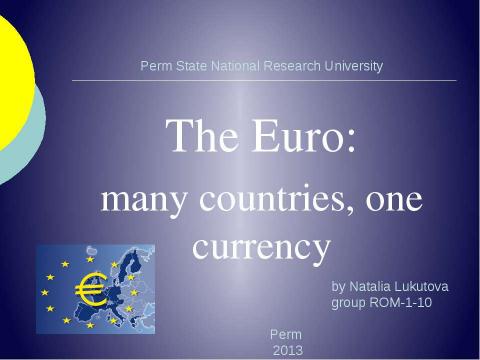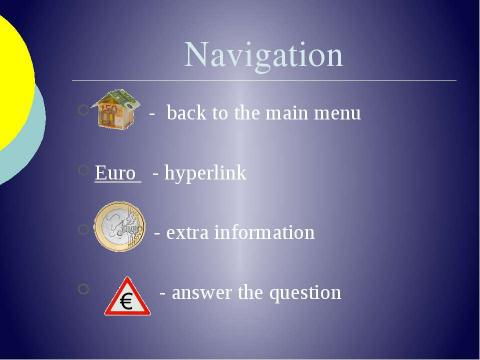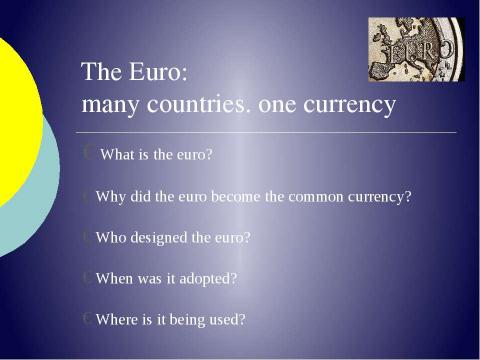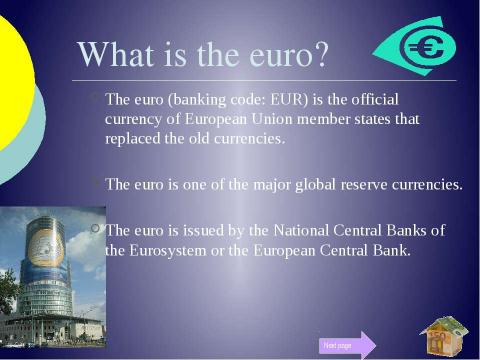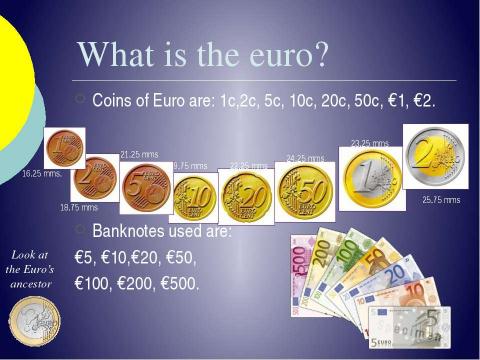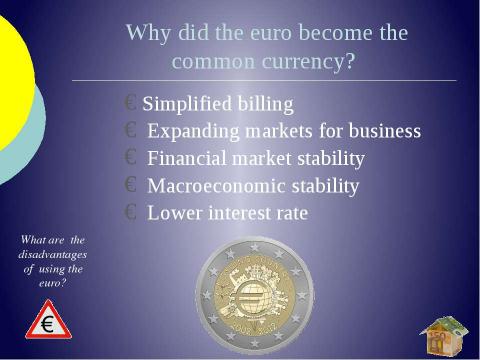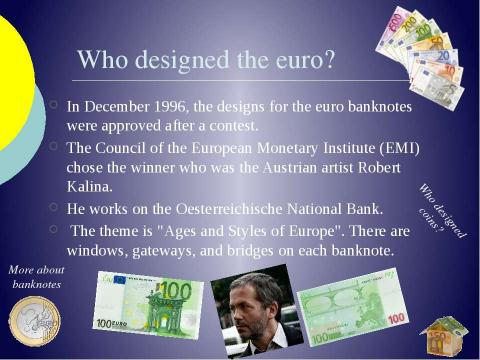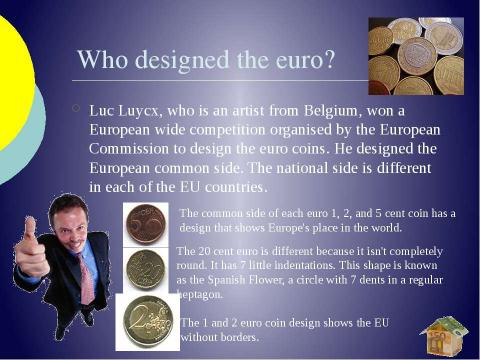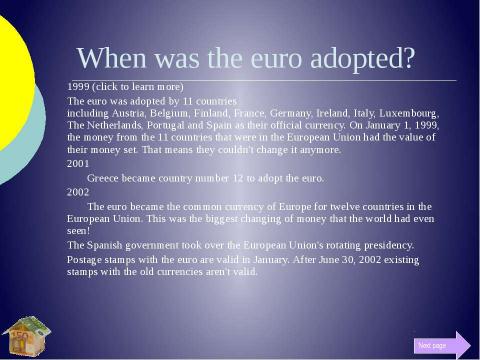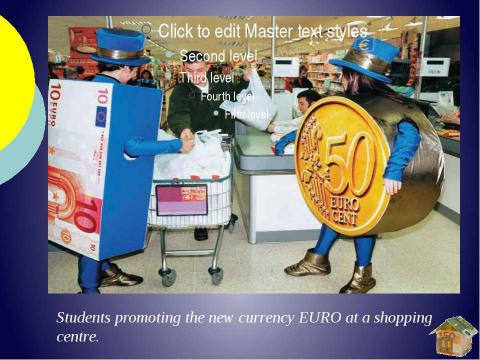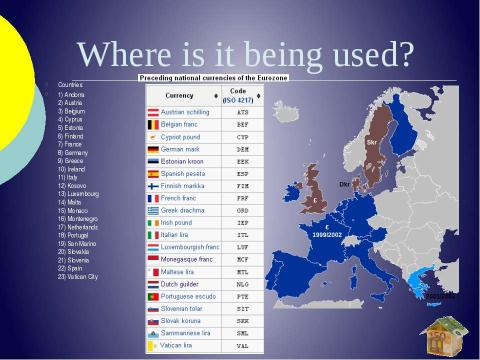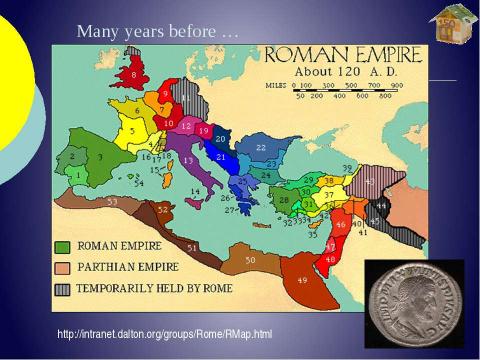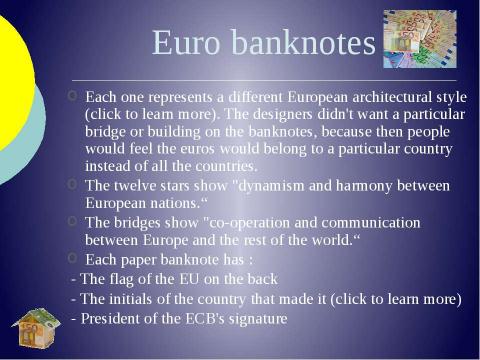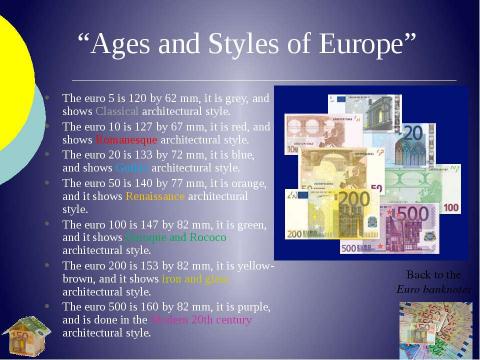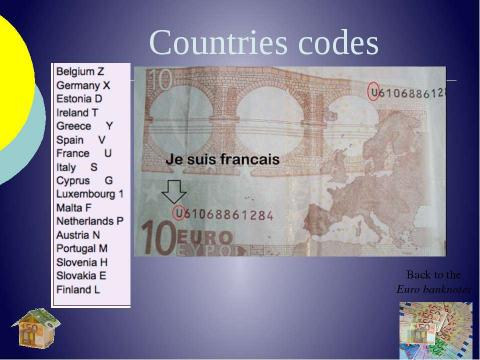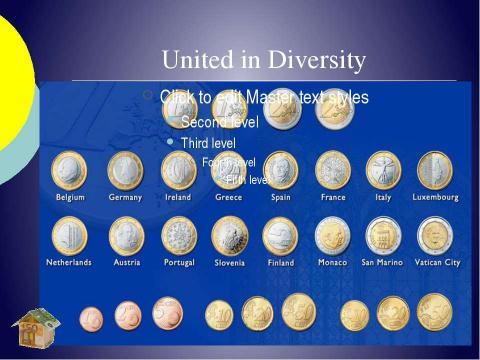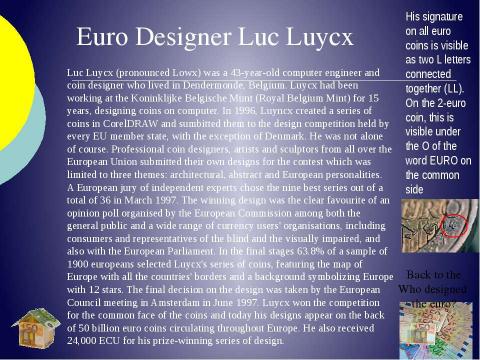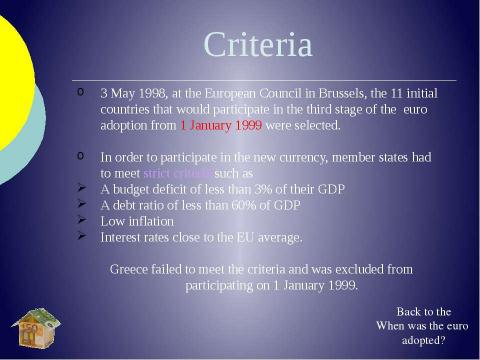Текст слайда: Perm State National Research University The Euro: many countries, one currency
Текст слайда: Navigation — back to the main menu Euro — hyperlink — extra information — answer the question
Текст слайда: The Euro: many countries. one currency What is the euro? Why did the euro become the common currency? Who designed the euro? When was it adopted? Where is it being used?
Текст слайда: What is the euro? The euro (banking code: EUR) is the official currency of European Union member states that replaced the old currencies. The euro is one of the major global reserve currencies. The euro is issued by the National Central Banks of the Eurosystem or the European Central Bank.
Текст слайда: What is the euro? Coins of Euro are: 1c,2c, 5c, 10c, 20c, 50c, €1, €2. Banknotes used are: €5, €10,€20, €50, €100, €200, €500.
Текст слайда: Why did the euro become the common currency? Simplified billing Expanding markets for business Financial market stability Macroeconomic stability Lower interest rate
Текст слайда: Who designed the euro? In December 1996, the designs for the euro banknotes were approved after a contest. The Council of the European Monetary Institute (EMI) chose the winner who was the Austrian artist Robert Kalina. He works on the Oesterreichische National Bank. The theme is "Ages and Styles of Europe". There are windows, gateways, and bridges on each banknote.
Текст слайда: Who designed the euro? Luc Luycx, who is an artist from Belgium, won a European wide competition organised by the European Commission to design the euro coins. He designed the European common side. The national side is different in each of the EU countries.
Текст слайда: When was the euro adopted? 1999 (click to learn more) The euro was adopted by 11 countries including Austria, Belgium, Finland, France, Germany, Ireland, Italy, Luxembourg,The Netherlands, Portugal and Spain as their official currency. On January 1, 1999, the money from the 11 countries that were in the European Union had the value of their money set. That means they couldn't change it anymore. 2001 Greece became country number 12 to adopt the euro. 2002 The euro became the common currency of Europe for twelve countries in the European Union. This was the biggest changing of money that the world had even seen! The Spanish government took over the European Union's rotating presidency. Postage stamps with the euro are valid in January. After June 30, 2002 existing stamps with the old currencies aren't valid.
Текст слайда: Where is it being used? Countries: 1) Andorra 2) Austria 3) Belgium 4) Cyprus 5) Estonia 6) Finland 7) France 8) Germany 9) Greece 10) Ireland 11) Italy 12) Kosovo 13) Luxembourg 14) Malta 15) Monaco 16) Montenegro 17) Netherlands 18) Portugal 19) San Marino 20) Slovakia 21) Slovenia 22) Spain 23) Vatican City
Текст слайда: United in Diversity






